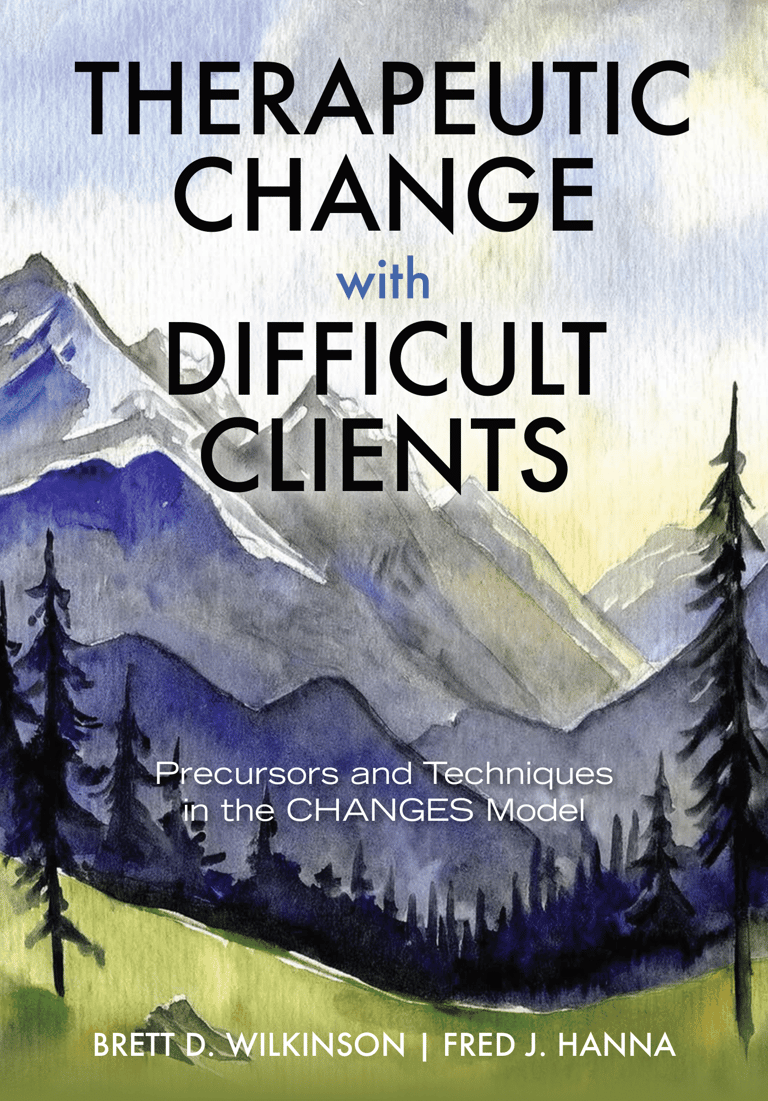
Writer. Professor. Humanist.


This book examines what brings about beneficial change in human beings, regardless of whether one participates in therapy or not. Its promise lies in the fact that it concentrates on therapeutic change itself by centralizing client-focused factors that can be understood, identified, monitored, discussed, evaluated, and activated in the therapeutic encounter. As such, this book examines the capacity of individuals to activate therapeutic change, the many barriers to doing so, and the power of counselors and psychotherapists to catalyze this process using a wide variety of well-established techniques.
If people possess, develop, or implement the precursors in the CHANGES model, then change will occur with or without a therapist. Logically, if change can occur without an empathic therapist who employs a psychological theory in practice, then a) change is largely in the domain of the person and b) it is the primary responsibility of therapists to identify and facilitate the activation of precursors. The CHANGES model thus represents a common factor approach to identifying the principles of therapeutic change itself rather than the more widely recognizable common factors of therapy. Armed with a well-founded grasp of therapeutic change itself, the role of the therapist is to help clients activate the seven precursors of the CHANGES model related to a given problem.
Paperback. 328 pages. Copyright 2025. American Psychological Association (APA) Members/Affiliates: $44.99; List Price: $59.99
Item #: 3843167 ISBN-10: 1-4338-4316-1 ISBN-13: 978-1-4338-4316-7
For bulk orders, email order@apa.org
"If I could grab any one book to give to psychotherapists in training at any level it would be Therapeutic Change with Difficult Clients. It has enough theory, so it hangs well together, but the real treasure is the host of tools and techniques that are wonderfully explained and exemplified. No therapist, even experienced ones, should miss this valuable volume. This old dog learned lots of new tricks!
David M. Young, Ph.D., Professor Emeritus, Psychology, Purdue University Fort Wayne
"Finally, a book about how to support people in their change process! This book's focus on facilitating and enhancing people's change process is a must-read for all mental health providers. Too often it is assumed our clients want to change, when in reality most people have ambivalence about change. The authors guide readers, step-by-step, with practical tools they can use to help encourage change. The case examples and applications being to life the most important thing we do as helpers: support others in their change process."
Victoria Kress, Ph.D., ACA President-Elect; Distinguished Professor, Youngstown State University
"Even the most experienced and skilled therapists encounter challenges with clients that can stifle progress and bring frustration into the therapeutic relationship. In this volume, Wilkinson and Hanna explore a compassionate approach to working with these challenges that considers the unique individual client. It is an excellent resource for any therapist."
Louis Hoffman, Ph.D., Editor, APA Handbook of Humanistic and Existential Psychology
"Wilkinson and Hanna are percipient thinkers who have put together a truly invaluable book on how to work with some of the most challenging clients. Filled with keen insights and practical wisdom for practice, I am confident that this second edition will be widely read and cited for years to come."
Matthew E. Lemberger-Truelove, Ph.D., American Counseling Association Fellow, Professor of Counseling at the University of Connecticut
